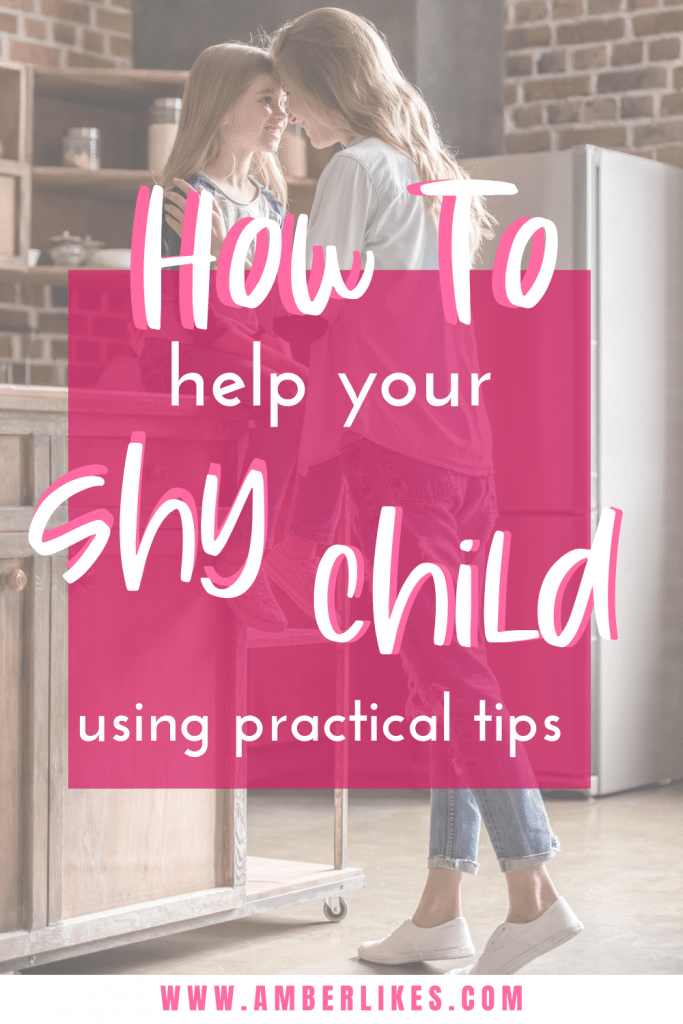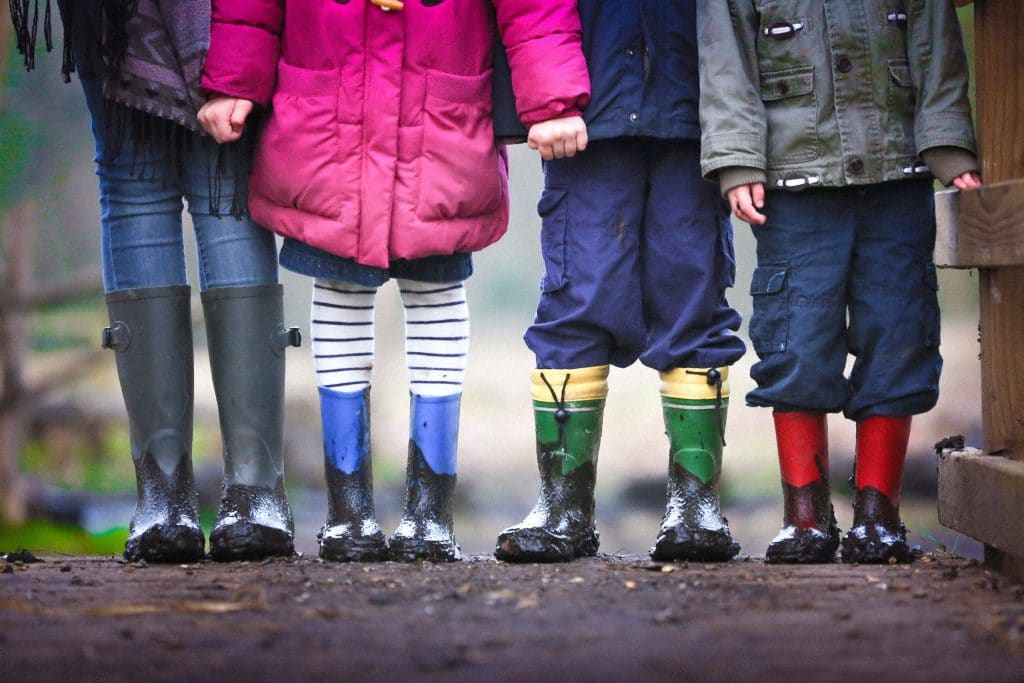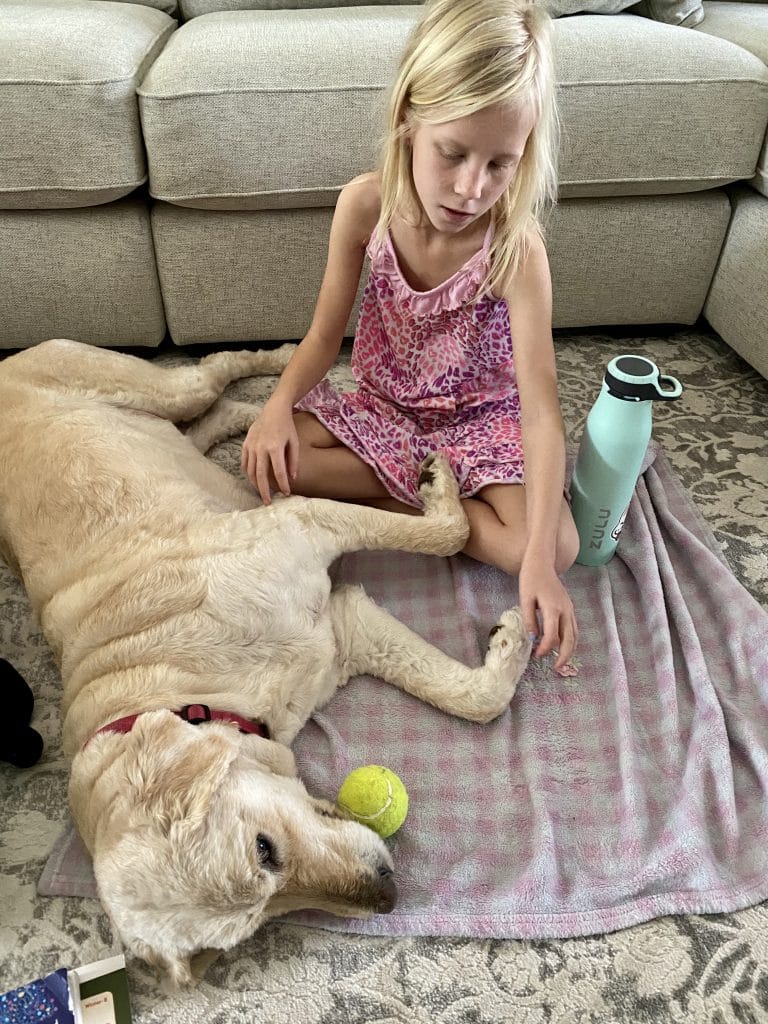
How to Help a Shy Child with Practical Tips

I would like to start sharing more mental health resources, beginning with how to help a shy child. As a psychology major in college, and with my Master’s in Social Work, this is a subject that’s near and dear to my heart. Mental health is something I discuss with my children quite a bit, in child friendly ways of course. I always try to encourage sitting with your feelings, acknowledging them, and understanding them. We all have ways we could improve our emotional and mental health. By sharing some easy tips here on my website, I hope I can help your family improve your mental health as well!
In this series, I’m starting with how to help a shy child. I’m partnering with Thriveworks, which is a a chain of 100+ premium counseling centers, with new locations in Fort Lauderdale and Boca Raton Florida, to share some easy tips for how to help a shy child. As a Mom of 5, I’ve had several children go through phases of being shy. It’s part of some children’s personalities more than others, and that’s ok. But when it starts to affect their social life and overall well being, it needs to be addressed. Keep reading for some tips from Thriveworks staff writer Taylor Bennett.
Understand Your Child
Some kids are loud, talkative, and outspoken. These are the social butterflies. But other kids are quite the opposite: quiet, introverted, and reserved. These are the shy wallflowers.
Regardless of your child’s personality type, parenting will come with challenges. But a common challenge in parenting shy children is knowing how to help them step out of their comfort zone, interact with their peers, and develop relationships with other kids. Fortunately, with the right knowledge and care, you can help your shy child check these boxes.

Do I Have a Shy Child?
It might be obvious that your child is on the shyer side. On the other hand, you might feel unsure about characterizing them in this way. Does your child exhibit the following?
- They act nervous around other kids and don’t talk much. May prefer to play by themselves at recess.
- They pay attention to what other kids are doing but stay isolated.
- When other kids take interest in them, they don’t usually show the same interest.
If so, your child might be shy, or what psychologists call “anxious, solitary children.” In many cases, these kids wants to play with other kids, but their shyness serves as a roadblock. Shy kids can suffer as a direct result of their introverted inclinations: they might experience feelings of loneliness, succumb to bullying, and fail to develop proper social skills.
What Type of Shy Is Your Child? 3 Subgroups
Heidi Gazelle, from the University of North Carolina at Greensboro, researched the psychology of shy kids and identified several different subtypes:
- Agreeable shy kids: This subtype responds well when other kids approached them. They are mostly accepted by their peers and function well in friendships, comparable to the friendships of their extroverted counterparts.
- Aggressive shy kids: Gazelle also identified an aggressive shy subtype, which might sound contradictory, but certainly exists. Children of this subtype keep to themselves but have quite the opposite of agreeable shy kids when approached by others. When their peers approach them, aggressive shy kids react angrily or in a hostile manner. This subtype struggles the most with developing relationships.
- Immature shy kids: Immature shy kids tend to hold back in social situations, but sometimes decide to branch out. When they do approach their peers, however, they do so in a way that other kids find “annoying,” according to Gazelle. This often leads to their being disliked and ignored by their peers.
Understanding which subtype your shy child fits into can inform your actions moving forward. For example, an agreeable shy child might just need a small push to feel confident opening up to others, while an aggressive shy child will likely needs more in-depth support and guidance in their social interactions.

Helping Your Shy Child Interact Well with Others: 5 Tips
First and foremost, it’s okay that your child isn’t an extrovert or social butterfly. However, it is important that they find their own way to interact well with their peers and form those important relationships, regardless of their shy subtype. Here are 5 tips for helping your shy child get along with other kids:
Pay attention to their interests.
Kids befriend other kids who share their interests—much like us adults! Tune into your child’s favorite activities, such as playing soccer, drawing, or even watching Paw Patrol. Then, find a class or group centered around this interest that your child can join. They’ll have plenty to do and talk about with the other kids, which often serves as the little push they need to open up.
Don’t overwhelm them.
Many shy or anxious kids feel more comfortable with one person versus a big group. In finding them a class as well as setting up play dates with other children, you should keep this top of mind. Start small by setting them up with one or two kids to interact with. This will give them the best chance to practice their social skills and develop friendships.
In addition to manners, teach your child about social cues.
Of course it’s important to teach your child how to say “please” and “thank you.” But it’s also important that you teach your shy child about social cues, such as smiling, making eye contact with others, and speaking clearly. Role play can help you model these cues to your child.
Be patient.
You can’t expect your shy child to open up and feel empowered to interact with their peers immediately. Instead, be patient with them as you teach them social cues, introduce them to other kids, and encourage them to build friendships. Support them throughout this journey and be persistent in guiding them with developing important connections with others.
Work with a child therapist.
If your child suffers from serious anxiety or shyness and isn’t equipped to socialize or build relationships with others, consider setting them up with a child therapist. Child therapy can help your kid develop necessary social skills, feel more comfortable with their peers, and begin to form relationships with other children.
Remember: Every child has unique thoughts, feelings, and needs. If you have a particularly shy child, implement the above tips and offer unbridled support as they learn to navigate relationships with their peers.
This post is sponsored by Thriveworks. All opinions are my own.
You may also like:
Parenting Teens: What They Won’t Tell You They Need
You May Also Like

Planning the Perfect Party in Time for the Big Game
January 29, 2022
Tired Mom Ultimate Gift Guide Extravaganza
October 27, 2020



